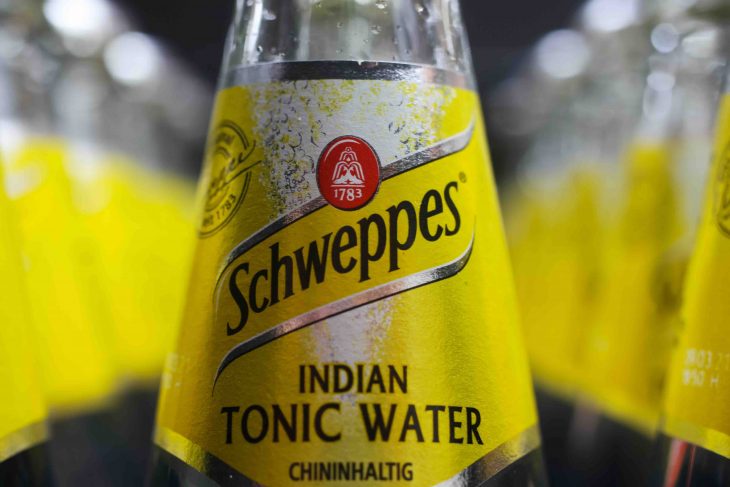
Tonic water is a popular beverage known for its distinct bitter taste and effervescence. It is commonly used as a mixer in cocktails but can also be enjoyed on its own. While tonic water adds a refreshing element to beverages, it’s important to understand its nutritional profile to make informed choices about consumption. In this article, we will explore 10 tonic water nutrition facts that will help you better understand its composition and potential health implications.
Calorie Content
Tonic water is relatively low in calories compared to other carbonated beverages. On average, an 8-ounce serving of tonic water contains approximately 90 calories. However, it’s important to note that the calorie content may vary among different brands and flavors.
Carbohydrate Content
Tonic water contains carbohydrates in the form of added sugars. The sugar content can range from 20 to 30 grams per serving, contributing to the overall calorie count. It’s worth noting that excessive sugar consumption can have adverse effects on health, so moderation is key.
Quinine
Quinine is a key component of tonic water that gives it its distinctive bitter taste. It is derived from the bark of the cinchona tree and has historically been used to treat malaria. In modern tonic water, the quinine content is significantly lower and primarily included for flavor.
Sodium Content
Tonic water typically contains a small amount of sodium. A single serving can have around 5 to 10 milligrams of sodium. While this amount is relatively low, individuals following a low-sodium diet should be mindful of their tonic water intake and consider lower-sodium alternatives if necessary.
Carbonation
The effervescence of tonic water is a result of carbonation. Carbonated beverages can cause bloating and discomfort in some individuals. If you experience such symptoms, opting for still tonic water or reducing carbonated beverage intake may be beneficial.
Quenching Thirst
While tonic water can be refreshing, it’s important to note that it may not be as effective at quenching thirst as plain water. The presence of sugars and other additives can leave you wanting more, so it’s essential to balance tonic water consumption with adequate hydration from water.
Antioxidants
Tonic water may contain some antioxidants derived from its ingredients. For example, citrus-flavored tonic waters may provide a small amount of vitamin C, which is known for its antioxidant properties. However, the overall antioxidant content in tonic water is relatively low compared to fruits and vegetables.
Mixers in Cocktails

Tonic water is a popular choice as a mixer in various cocktails, such as the classic gin and tonic. It adds a unique flavor profile and effervescence to the drink. However, it’s important to be mindful of the added calories and sugars when using tonic water as a cocktail mixer.
Quinine Sensitivity
Some individuals may be sensitive to quinine, the ingredient found in tonic water. Quinine sensitivity can manifest as symptoms like headaches, allergic reactions, or digestive issues. If you experience any adverse effects after consuming tonic water, it’s advisable to consult a healthcare professional.
Moderation is Key
As with any beverage, moderation is key when consuming tonic water. While it can be enjoyed as part of a balanced diet, excessive consumption of tonic water’s added sugars can contribute to weight gain and potential health issues. It’s essential to consider your overall sugar intake and make informed choices based on your individual dietary needs.
Final Thoughts
In conclusion, tonic water can be a refreshing and enjoyable beverage option. However, it’s important to be mindful of its nutritional profile and consume it in moderation. Understanding the various aspects of tonic water’s composition allows you to make informed choices that align with your health and wellness goals. Remember to enjoy tonic water in moderation and consider your overall dietary needs and preferences when incorporating it into your lifestyle. Cheers to staying hydrated and making informed choices!
Frequently Asked Questions (FAQs)
Is tonic water the same as soda water or seltzer water?
No, tonic water is different from soda water or seltzer water. Tonic water contains quinine and is slightly sweetened, giving it a distinct flavor profile, whereas soda water and seltzer water are carbonated water without any added flavors or sweeteners.
Can tonic water be consumed by individuals with diabetes?
Individuals with diabetes should be cautious when consuming tonic water due to its added sugar content. It’s advisable to check with a healthcare professional or a registered dietitian to determine the best choices for managing blood sugar levels.
Does tonic water provide any health benefits?
Tonic water contains a small amount of quinine and may provide some flavor and antioxidants from its ingredients. However, its overall health benefits are limited compared to a balanced diet rich in fruits, vegetables, and other nutrient-dense foods.
Can tonic water help with leg cramps?
Quinine, a component of tonic water, has been traditionally used to alleviate leg cramps. However, the amount of quinine in modern tonic water is significantly lower, and its effectiveness in relieving leg cramps is still a subject of debate among healthcare professionals.
Are there any alternatives to tonic water for cocktail mixers?
If you’re looking for alternatives to tonic water, you can consider options like soda water, seltzer water, or flavored sparkling water. These choices provide effervescence without the added sugars found in tonic water.
Was this page helpful?
Our commitment to delivering trustworthy and engaging content is at the heart of what we do. Each fact on our site is contributed by real users like you, bringing a wealth of diverse insights and information. To ensure the highest standards of accuracy and reliability, our dedicated editors meticulously review each submission. This process guarantees that the facts we share are not only fascinating but also credible. Trust in our commitment to quality and authenticity as you explore and learn with us.
